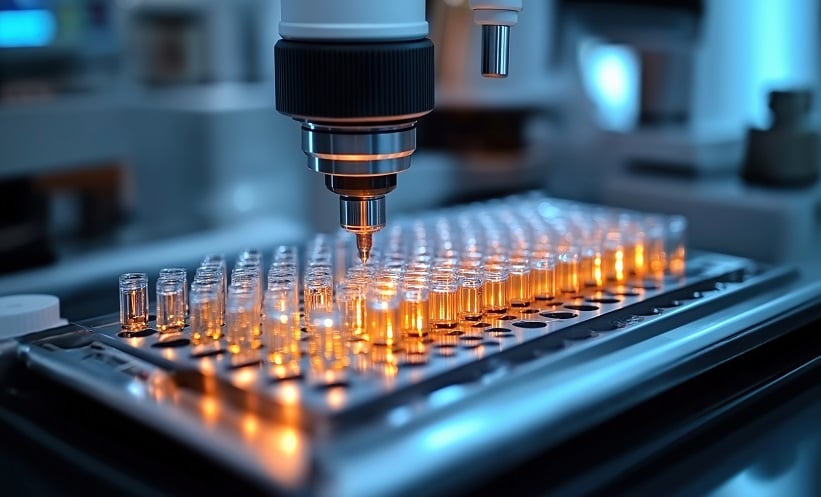A GROUNDBREAKING study has demonstrated that AI-driven liquid biopsies could revolutionise cancer care by enabling early, non-invasive tumour detection. Traditional cancer detection methods often require invasive procedures, but liquid biopsies, which analyse blood samples, offer a less invasive alternative. However, developing a reliable liquid biopsy test has proven challenging due to the complexity of blood-based biomarkers.
In a new study, researchers utilised a cutting-edge multi-task generative AI model, Orion, to analyse orphan non-coding RNAs (oncRNAs) from blood serum samples of 1,050 individuals diagnosed with non-small cell lung cancer (NSCLC). These individuals were from diverse stages of cancer progression, along with age-, sex-, and BMI-matched controls. The team aimed to create a robust signature of blood-based biomarkers using Orion, a model powered by variational auto-encoders, which enables it to learn patterns from high-dimensional data across large and varied patient groups.
The results were impressive: Orion achieved a sensitivity of 94% (95% CI: 87%-98%) and a specificity of 87% (95% CI: 81%-93%) in detecting cancer across all stages. These results surpassed other commonly used methods, showing a sensitivity improvement of over 30% in validation datasets. The study’s findings suggest that AI-driven liquid biopsies have the potential to become a highly accurate, non-invasive tool for early cancer detection, paving the way for more personalised and effective treatment strategies.
Helena Bradbury, EMJ
Reference
Karimzadeh M et al. Deep generative AI models analyzing circulating orphan non-coding RNAs enable detection of early-stage lung cancer. Nature Communications. 2024;15(10090).








